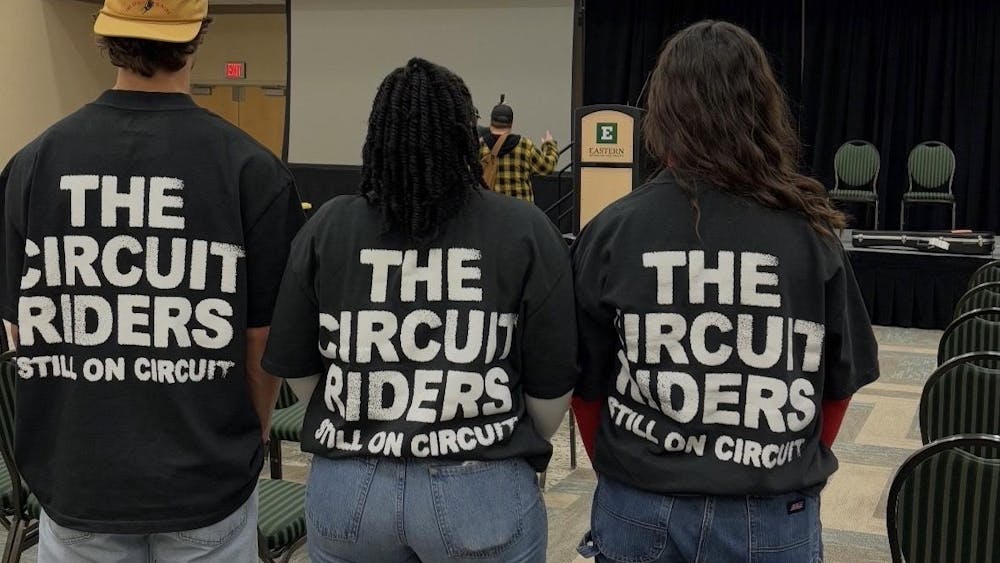Grab your turkeys and latkes, because this year was the first time in 125 years that Thanksgiving and Hanukkah fell on the same day. The blogosphere has dubbed this day “Thanksgivukkah’” in honor of both holidays, but the holiday received mixed reviews.
Jewish people believe that having Thanksgiving on the same day as Hanukkah undermines both holidays’ importance to them. Hanukkah is a religious holiday that is largely un-commercialized, while Thanksgiving is a secular holiday that is much more commercialized. Other American Jews, such as those in a Huffington Post article titled, “Jews have mixed feelings about Thanksgivukkah,” state that it’s simply a unique way to celebrate both holidays.
Eastern Michigan University Special Education Major, Tami Greenberg said that the two days coinciding is a good thing.
“I think it adds extra fun to both holidays,” Greenberg said. “Being able to spend a majority of Hanukkah with my family was nice since it usually falls while I’m still in school so I usually can’t make it home.”
The dilemma of missing Jewish holidays because of school is a common occurrence for many Jewish students at EMU and all over the U.S. Many times, Jewish holidays don’t fall on any scheduled university breaks, so students either have to opt to miss school or miss spending a day with their families.
S.R. Hewitt of the Huffington Post writes that Jews have much to be thankful about concerning Thanksgivukkah. The story of Hanukkah is not only about oil that lasted eight days, but also about how the oppressive Greek government of the past forbade the Jews from practicing their religion freely in their own land until the Jewish Maccabee army defeated them.
In the U.S., Jews can proudly and publicly display menorahs and have lighting ceremonies without fear of being persecuted. Hewitt also writes that some countries in Europe have outlawed the
Kosher slaughtering practice, so eating a Kosher turkey would not be an option for Jews living there.
Perhaps the best reason that Thanksgivvukkah was such a success is that Hanukkah finally came at a time when the Christmas season hadn’t started yet.
According to the Heritage Florida Jewish News, many non-Jews think that Hanukkah is somehow related to Christmas because it usually falls in the Christmas season when it really has nothing to do with Christmas at all. Many Jews still opt to give presents on Hanukkah because of its proximity to Christmas and the tradition of gift giving, which was not a tradition for Hanukkah until it came to
America. As the Heritage Florida Jewish News states “this year’s Thanksgivikkah puts a stop to the dangerous blurring of two distinct religious traditions.”
Jews and non-Jews alike have learned a lot from Thanksgivukkah and can hopefully continue to respect both holiday traditions for what they truly stand for.









